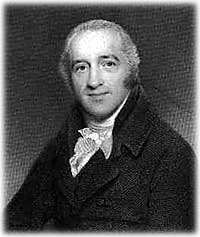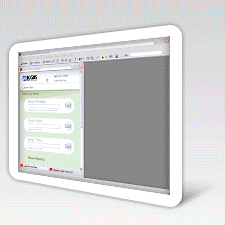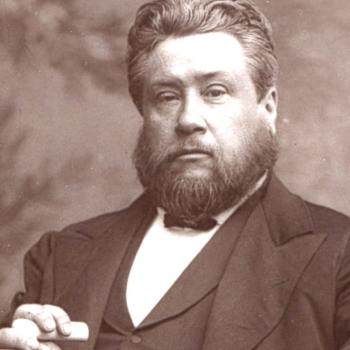__________________________________________________
Technology helps me in both my sermon preparation and in my personal devotional life. By technology, I’m referring specifically to the Internet and Bible software. I love it and have no apology for using it to discover insights from God’s Word and to improve the quality of my preaching.
People have three different reactions when I talk to them about using technology to help us understand God’s Word. Some respond enthusiastically. Others—well, their eyes just glaze over. The third group starts talking about plagiarism of sermons and how terrible it is that pastors are no better than children who buy essays online to submit as coursework. Perhaps you have had similar responses when you talk about SermonCentral.com. Maybe you don’t even like to talk about it for fear of these responses. I hope that by the time you have finished reading this article you will be able to hold your head high about your use of SermonCentral.com and other forms of technology to help you preach.
What about the fear of abuses of technology, particularly Internet sermon access? I’ll simply put my cards on the table here: I think there is a lot of unnecessary concern about it. I do not think that there are many men of God who are lifting whole sermons from elsewhere and simply re-preaching them. Sure it happens. But for those of us who are conscientiously and diligently putting our hearts into our sermon preparation, it’s not worth wasting our time on those who aren’t. Let’s just preach the Word!
On Judgment Day I would not want to be in the shoes of anyone who made a habit of the loathsome practice of simply passing off other people’s sermons as their own. As preachers, we should never forget the following very serious words of warning:
“Not many of you should become teachers, my brothers, for you know that we who teach will be judged with greater strictness” (James 3:1, ESV).
Most preachers understand why even a great preacher like Martyn Lloyd-Jones could say of his own preaching,
“I can say quite honestly that I would not cross the road to listen to myself preaching.” This wasn’t because of any lack of commitment to preaching on his part since he also said, “Preaching has been my life’s work … to me the work of preaching is the highest and the greatest and the most glorious calling to which anyone can ever be called.”
(Preface to D. Martyn Lloyd-Jones, Preaching and Preachers, Zondervan Publishing House, Grand Rapids, Michigan, 1971)
The joyful, yet awesome, responsibility of preaching should have an effect on us. Of course, we would not simply copy another person’s sermon—how could we dare? But how can we go into the pulpit and deliver our own untested insights to the people God has entrusted to our preaching? It is precisely because of the weight of this responsibility that far from being embarrassed about my reading of other people’s material, I consider it imperative to do so. After all, I will stand before God to give account for every word I preach.
There are sometimes double standards in people’s minds on this issue of plagiarism. Surely reading sermons from SermonCentral is no different from reading a commentary or theological work, or a book of sermons. Technology doesn’t alter at all the basic fact—we are reading the work of others who have studied the Bible before us. The truth is that for thousands of years preachers have studied what other students of the Bible have written. How is reading published sermons so very different from reading a commentary? Do people who feel we should not use any technology in our sermon preparation seriously believe that we should not read anything other than the Bible to help us?
 Centuries before anyone thought of making sermons available on the web, Charles Simeon produced his Horae Homileticae, which was essentially a set of sermon outlines which covered the whole of Scripture. Over on Wikipedia, the accusation is made that this publication was an “invitation to plagiarism”, which seems crazy to me. All SermonCentral.com enthusiasts should rejoice to hear that the people at Logos Bible Software are publishing an electronic edition of this amazing work.
Centuries before anyone thought of making sermons available on the web, Charles Simeon produced his Horae Homileticae, which was essentially a set of sermon outlines which covered the whole of Scripture. Over on Wikipedia, the accusation is made that this publication was an “invitation to plagiarism”, which seems crazy to me. All SermonCentral.com enthusiasts should rejoice to hear that the people at Logos Bible Software are publishing an electronic edition of this amazing work.
The truth is, the advice I was given by a wise man when I was just beginning to preach as a teenager is as applicable to the age of the Internet and Bible software as it was when these things hadn’t been conceived. My mentor encouraged me to work on a passage myself, trying to understand it as best as I could, and then check my conclusions and expand my understanding by reading others. Such advice has been repeated by every preacher who I respect and have spoken to about this issue. Another of my mentors told me that he didn’t think he had ever preached a sermon without first checking what Charles Spurgeon had to say on the relevant passage.
There is no such thing as a copyright on ideas. Plagiarism is not an issue when we begin to extract ideas, reword them, and combine them with other ideas we have found elsewhere or thought of ourselves. Actually, I have learned over the years that if I come up with an interpretation of Scripture that seems new and fresh to me, the majority of the time I will discover, if I read enough commentaries or sermons, an almost identical idea has been expressed before by someone else. It is when I don’t find my thoughts reflected previously that I worry, since I suspect that at least half of such truly original ideas are probably heretical! It is technology that allows me to check myself against the collective thought of others, and incorporate some of the ideas of others as appropriate.
 It can be amusing to see how unknowingly dependent on others we sometimes find ourselves. I remember a few years ago preparing a sermon on a subject and then turning to one of Spurgeon’s sermons to see what he had written on the passage at hand. I was shocked when I realized that I had come up with a set of headings that were so similar to his and in such a similar order that someone would have thought I had copied them. I never decided whether I should be pleased that I had spontaneously come to the same conclusions as the prince of preachers, or conclude that I had obviously read that sermon at some point in the past and had somehow regurgitated the headings. I am fairly certain that the second conclusion was, in fact, the case.
It can be amusing to see how unknowingly dependent on others we sometimes find ourselves. I remember a few years ago preparing a sermon on a subject and then turning to one of Spurgeon’s sermons to see what he had written on the passage at hand. I was shocked when I realized that I had come up with a set of headings that were so similar to his and in such a similar order that someone would have thought I had copied them. I never decided whether I should be pleased that I had spontaneously come to the same conclusions as the prince of preachers, or conclude that I had obviously read that sermon at some point in the past and had somehow regurgitated the headings. I am fairly certain that the second conclusion was, in fact, the case.
Both my early mentors and my fear of getting it wrong gave me a desire to check my conclusions before I preached. When I was first learning to prepare sermons, I traveled into London to the Evangelical Library, w
hich was also much loved by one of my other heroes—Dr. Martyn Lloyd-Jones. I would find the largest table I could and gradually fill it with commentaries and sermon collections open to the relevant passage I was studying. I quickly realized this was not a very efficient way to study since I only needed a few pages at most of the large volumes I was lugging around the library—indeed, often I was only really interested in a sentence or two which encapsulated a thought that I had not yet considered.
It was around that time that I decided I needed to have the Spurgeon volumes at home. When I saw the cost and size of the paper collection, I knew it wasn’t possible for me. I found instead an electronic edition at a much cheaper price, and my electronic book collection began.
I mentioned earlier that I had preached a sermon today. Let me tell you a bit about the different forms of technology I used to help me in this talk, and how I use them generally. Firstly, I am an avid believer in the power of this new form of communication known as the Internet. Historians are unequivocal that the Reformation was only possible because of the invention of the printing press. This enabled Luther to communicate with large numbers of people at once through printed tracts. Luther was able to transform Europe theologically, unlike men like the martyr Huss, who had prophesied 100 years previously that the Reformers were coming. Today we are living through a revolution in communication that is at least as significant. Christians need to grab the opportunities this presents. Technology is a gift to be received—and seized!
 The Internet has enabled me to connect with many people and benefit from their wisdom. My blog in particular has led me to form good relationships with people I would never have otherwise met. At all stages of the composition of my sermon notes, I made heavy use of e-mail and chat programs to share my ideas and ask for help from a few people—some of whom live on another continent to me. It seems I am in good company as Josh Harris recently blogged that he e-mails his manuscript for comments to C.J. Mahaney and others every Saturday night wherever they may be in the world.
The Internet has enabled me to connect with many people and benefit from their wisdom. My blog in particular has led me to form good relationships with people I would never have otherwise met. At all stages of the composition of my sermon notes, I made heavy use of e-mail and chat programs to share my ideas and ask for help from a few people—some of whom live on another continent to me. It seems I am in good company as Josh Harris recently blogged that he e-mails his manuscript for comments to C.J. Mahaney and others every Saturday night wherever they may be in the world.
Also, on the Internet I found SermonCentral to be particularly useful in finding cross-references for the theme of my passage. This was more difficult than is sometimes the case since this was one of those biblical subjects which is frequently described using different words. Thus, I decided to search for other sermons with a particular key word in their title. As well as giving me material to read, this helped me to identify some key passages in the Bible I had not considered. I love being able to read the product of the labors of other preachers around the world.
I was also able to discover material from a collection of over 100 handpicked Christian websites and blogs by using a search box I include on my blog’s homepage. Utilizing the Google search engine, this simple, but helpful, tool enables me to limit my search to the specific Christian sites I want to study. These include desiringgod.org, spurgeon.org, ccel.org, bible.org, sermoncentral.com, and many others. Within a split-second, everything my favorite Christian sites have to say on a Bible verse or subject appears on my screen.
I also used the ESV.org website to help me quickly copy and paste passages into my notes, as well as to listen to the text. (The same can be done for other Bible versions with the Search-the-Bible feature on SermonCentral.com.) I even downloaded some mp3 sermons on my theme. I wrote a set of long notes, then decided to convert them into a PowerPoint show, and then changed my mind about having slides, so needed to export it back to the word processor for yet another edit. As you can see, the preparation of my notes is heavily technology-dependent. If I had to go back to a pen and paper to produce the notes from which I will preach, it would certainly feel very odd!
 But for me, the most helpful source of assistance of all in my sermon preparation is my Bible software. The reason why I like it the most is that it is a direct connect with the Bible itself—the sole infallible source of preaching material. Most software packages will allow you to easily compare different English translations and explore the Bible in its original languages. My favorite is Logos Bible Software, which does all this and much more. It’s great to see the former Microsoft employees who founded Logos now using their talents to strengthen my study of Scripture.
But for me, the most helpful source of assistance of all in my sermon preparation is my Bible software. The reason why I like it the most is that it is a direct connect with the Bible itself—the sole infallible source of preaching material. Most software packages will allow you to easily compare different English translations and explore the Bible in its original languages. My favorite is Logos Bible Software, which does all this and much more. It’s great to see the former Microsoft employees who founded Logos now using their talents to strengthen my study of Scripture.
For many years now, if I want to check out the meaning of a Bible passage, do a word study in the original Greek, or, indeed, check out the latest theological thinking on a certain subject—I almost always turn to my Bible software application—which now feels to me like my own full-time personal digital assistant.
I also sometimes call my growing collection of electronic commentaries, lexicons, Bibles, interlinear Bibles, commentaries, reference books, and theological journals my personal “Theological Seminary in a Box.” Logos has served up a feast of resources in a one-stop platform. For me, at least, this software goes some way towards covering up my lack of any theological degrees. For sure, I’ve needed to learn from others in real life, and have done some theological training courses, but with Logos Bible Software I can instantly benefit from the pooled expertise of thousands of scholars.
The sheer volume of what is available electronically still amazes me. Just as an example, it is possible to obtain the majority of John MacArthur’s life works on a single disk! “What will I use as a doorstop now without those piles of books?” you ask. There are, in fact, literally thousands of books and products that can be stored on your hard drive.
 Over the years I’ve found my Bible software to be an invaluable resource in sermon preparation. I simply enter a passage on the home screen, press “go,” and watch as my whole electronic library is searched for information about that Bible reference. I hope you can grasp how having all these resources available electronically saves me countless hours of time. It would simply not be possible to search that many books and journal articles manually each week without an army of research assistants.
Over the years I’ve found my Bible software to be an invaluable resource in sermon preparation. I simply enter a passage on the home screen, press “go,” and watch as my whole electronic library is searched for information about that Bible reference. I hope you can grasp how having all these resources available electronically saves me countless hours of time. It would simply not be possible to search that many books and journal articles manually each week without an army of research assistants.
Are there any drawbacks to all of this technology? In a way, the very strength of this software is its weakness. A thorough use of technology and the Logos Bible Software in particular—especially if you have an extensive library—will greatly increase your confidence in preparing sermons. This could lead to an increase in pride and to a desire to over-display that knowledge whilst preaching. After spending hours chasing rabbit trails and wrestling with the text, we sometimes want others to see the fruits of our labors. In fact, we have to bury most of it. A good sermon, however, is like a
n iceberg. The mountain of ice—which represents the message itself—is dwarfed by the vast amount of preparation underpinning it beneath the surface.
I have sometimes spent hours studying a particular issue merely to come across with greater conviction as I preach a single sentence. It reminds me of something a manager at Apple said about preparation for Steve Job’s keynote presentations, “The team and I spent hundreds of hours preparing for a segment that lasted about five minutes.”
The good news for those of us with a large electronic library is that the reference materials represent the results of millions of hours of study by some of the sharpest theological minds among current and previous church scholars. I can simply open my software, type a Bible passage into the passage guide, and set my own personal team of thousands of scholars to work. Imagine being able to simultaneously e-mail the authors of 500 years’ worth of theological journal articles, asking if they had ever written on that obscure Bible verse you are struggling with—and getting an answer in seconds!
If we take our preaching seriously, I don’t see any alternative resource that can do everything that my Bible software library does – packages from other companies do exist, but none I have found have as many resources available as Logos. I am so grateful for it, along with the sermons that are available online at places like SermonCentral. (These days the two even work together seamlessly as SermonCentral results are incorporated into Logos Bible Software’s passage guide.)
With all this knowledge at our fingertips—how do we prevent the pride referred to in the statement “knowledge puffs up, but love builds up” (1 Corinthians 8:1)? I think that access to all of that knowledge can be turned—if our hearts are right—to stimulate humility. We ought to realize very quickly that wiser scholars than us have much to teach us and still disagree with each other on points we thought were “obvious”. This should make us humble. We can even imagine ourselves in a dialogue with the authors of all this material, and who knows, they might even persuade us of a new opinion. We must be more committed to the Bible than we are to the theological system to which we hold. This conviction was a major trait of Charles Simeon, who I mentioned at the beginning of this article.
Another possible drawback of the overuse of technology is this: When preparing to preach, we might feel that our task is complete when we have studied well. Rather, we must also build a bridge from this world to the world of the Bible. Only part of that bridge-building is done by studying the Bible and what others have said concerning it. A good sermon will also have a foot in this world. Thus, we must know something about this world so we can apply the Scriptures.
This is one reason why I like reading and hearing other people’s sermons; hopefully, at least some of them will have considered the applications and illustrations that connect with their congregations. Spurgeon was a master at this. We cannot merely copy his work, however, as we live in a very different context to him. We must learn to apply God’s unchanging Word to our changing culture. The importance of fresh, personal illustrations cannot be overemphasized.
But producing a connection is not merely an intellectual task. We need God’s help. I realize that an over-reliance on technology and the resources I utilize can detract and take away from spending time in prayer over the message. We should not presume that God will bless our laziness, nor should we forget to ask Him to bless the messages we have prepared with all that technology.
I do pray in front of my PC as I study and read, but just as at the beginning of my preparation it should be me, my God, and my Bible, at the end of my preparation, I need to switch off the computer, put aside the notes, get away from all distractions, and simply pray. I am ashamed to admit how often I have to remind myself to do this. For it is really only as I connect with God personally—because of or in spite of technology—that I will find He takes my preparation and turns it into an anointed sermon that will impact the lives of my hearers—and that, after all, is why we all preach. There is no better advice ever given to preachers than to follow the advice of the early Apostles who said:
“We will devote ourselves to prayer and to the ministry of the word.”
(Acts 6:4.)












